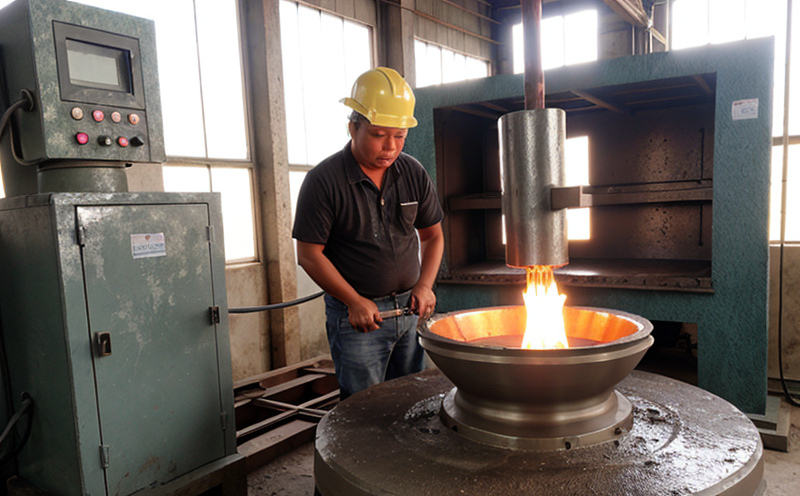ISO 4991 Cast Iron General Inspection and Testing
The ISO 4991 standard provides a comprehensive framework for inspecting and testing cast iron products to ensure they meet specified quality requirements. This service is crucial in the industrial manufacturing sector, particularly when dealing with foundry processes where the integrity of materials directly impacts product performance and safety.
ISO 4991 covers various aspects including visual inspection, dimensional checks, hardness tests, and non-destructive testing (NDT) methods such as ultrasonic testing or radiography. The standard is designed to provide a harmonized approach across different regions and industries, ensuring consistent quality in cast iron products.
For industrial manufacturing applications, the inspection of cast iron components can be particularly challenging due to their complex geometry and varying material properties. Our team specializes in handling these intricacies by employing advanced testing methods that go beyond basic inspections. This allows us to provide detailed reports on any potential flaws or discrepancies within your cast iron products.
Our expertise lies not only in executing the tests as per ISO 4991 but also in interpreting results accurately. By understanding both the theoretical aspects of metal science and practical manufacturing processes, our professionals can offer valuable insights into improving product design and production methods based on test outcomes.
The importance of adhering to standards like ISO cannot be overstated; it ensures that all parties involved—from suppliers to end-users—are working towards common goals. Compliance with such international norms helps build trust among stakeholders while enhancing overall operational efficiency within enterprises.
Our comprehensive approach includes not just compliance but also continuous improvement through cutting-edge technology and methodologies. We stay updated on latest developments in the field so that we can offer clients state-of-the-art solutions tailored to meet their unique needs.
Industry Applications
- Machinery Manufacturing: Ensuring robustness and durability of gears and other metal parts used in industrial machinery.
- Automotive Industry: Quality control for engine blocks, cylinder heads, and transmission casings.
- Construction & Infrastructure: Verification of structural integrity in large cast iron components like bridges and building supports.
- Petrochemical Sector: Inspection of valves, pumps, and other critical equipment to prevent leaks or failures that could lead to hazardous situations.
Quality and Reliability Assurance
The implementation of ISO 4991 is essential for maintaining high standards in quality assurance within manufacturing environments. By adhering strictly to this standard, companies can significantly enhance their reputation by demonstrating commitment to excellence and reliability.
Beyond mere compliance, our services aim at fostering long-term relationships built on mutual trust and shared goals. Our thorough inspections help identify areas needing improvement early enough so that corrective measures can be implemented promptly without causing undue disruption or cost escalation.
In summary, ISO 4991 plays a pivotal role in safeguarding the integrity of cast iron products throughout their lifecycle—from raw material sourcing to final assembly stages. Through meticulous adherence to this standard, manufacturers can ensure consistent performance and reliability across all levels of production.
International Acceptance and Recognition
The widespread adoption of ISO 4991 reflects its significance in the global market. Being an internationally recognized standard means that it enjoys broad acceptance among various stakeholders including regulatory bodies, buyers, sellers, and end-users alike.
This recognition translates into numerous benefits for businesses operating globally or seeking to expand their operations internationally. Adherence to ISO 4991 not only simplifies compliance processes but also opens doors to new markets where these standards are mandatory.
Our laboratory is certified to conduct these inspections in accordance with the requirements set forth by ISO 4991, ensuring accuracy and reliability of results. This certification adds credibility to our services and enhances client confidence in our capabilities.





